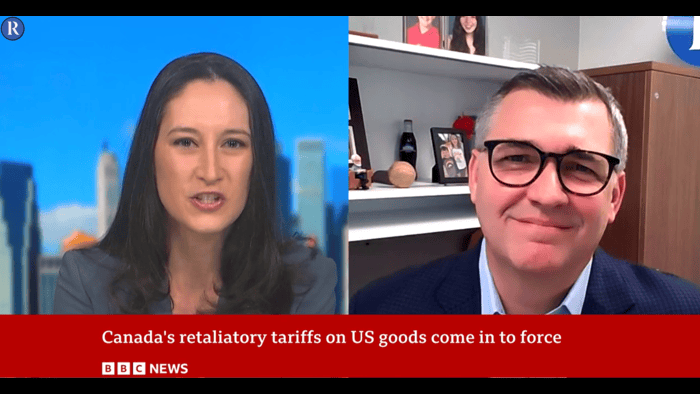Retailers Outline Trade Priorities for USTR Tai
- By [ Blake Harden ]
- 03/22/2021

Section 301 Tariffs Against China
RILA members, their millions of employees, and the American families and consumers who rely on retailers for essential items are bearing the financial burden from the section 301 tariffs covering over $300 billion worth of goods from China.These tariffs have resulted in less money in the pockets of American families, a slowdown in U.S. manufacturing, and decreased competitiveness for American businesses vis-à-vis their European and Asian counterparts. They have also cost American jobs.
We urge the Office of the U.S. Trade Representative (USTR) to lift the section 301 tariffs – especially Lists 3 and 4A – to relieve the financial burden on Americans and to help boost the U.S. economy. Removing the tariffs would put money back in the pockets of American consumers and families at a time when they need it most.
Western Hemisphere Competitiveness
As USTR crafts its strategy to address trade challenges with China, we urge it to utilize all available trade tools to incentivize sourcing away from China. All available flexibilities in our existing trade agreements should be used to encourage additional investment and sourcing in the Western Hemisphere. We further urge USTR to consider negotiating new flexibilities in DR-CAFTA and other FTAs to provide further incentives to relocate supply chains into Central and South America. In addition to building supply chain resilience within our own hemisphere and countering China, we believe near-shoring would have significant benefits for American manufacturers, exporters, and workers.
Section 301 Investigations into Vietnam
RILA and our members agree that U.S. trading partners should abide by U.S. and global trade rules, but we were concerned that investigations into Vietnam’s currency and timber practices could lead to the imposition of additional tariffs on goods from Vietnam.
We support bilateral and diplomatic talks with Vietnam to reach a negotiated outcome that addresses unfair trading practices without doing economic damage to American importers and exporters. We urge USTR to support the Treasury Department in these efforts. Similarly, we urge USTR to seek a negotiated outcome to resolve any unfair trading practices that may be identified in its section 301 investigation into Vietnam’s timber practices.
Digital Services Taxes
RILA and our members were similarly concerned with the launch of section 301 investigations into digital service taxes (DSTs) being considered or adopted by many of our trading partners. We share the Biden-Harris Administration’s concerns with the proliferation of DSTs that unfairly target and discriminate against American companies, and we agree they must be addressed. However, we are also concerned that these investigations could lead to the imposition of additional tariffs on imported goods – punishing American companies who are forced to pay the tariffs and doing additional financial harm to American workers and consumers and to the U.S. economy.
We appreciate the Biden-Harris Administration’s demonstrated willingness to resolve the DSTs through multilateral negotiations at the Organization for Economic Cooperation and Development (OECD), as well as Ambassador Tai’s support for that effort. We believe that the OECD is the appropriate forum for achieving a negotiated solution rather than pursuing retaliatory measures in the form of tariffs.
Forced Labor
RILA members do not tolerate forced labor in their supply chains. Our members have long-standing and robust programs in place to identify and address forced labor where it occurs. Our members are also constantly innovating to ensure these programs incorporate the latest best practices and tools available.
We believe strong U.S. leadership and a comprehensive strategy that involves all stakeholders, including our allies, is essential to ending forced labor practices – especially in such cases where it is state-sponsored. We look forward to working with USTR in crafting trade policies that support this goal.
MTB and GSP Renewal
The Miscellaneous Tariff Bill (MTB) lowers the cost of key products – including inputs and intermediate goods used by American manufacturers – that are not readily available in the United States. It helps to boost U.S. competitiveness by putting money back in the hands of American job-creators, allowing them to retain and hire workers and invest here at home.
In addition, the GSP program provides incentives to diversify supply chains away from China and boosts U.S. competitiveness by reducing costs for our members while also raising standards in beneficiary countries. According to USTR, GSP supports tens of thousands of American jobs and promotes economic growth in the developing world.
Renewing these programs quickly would create certainty and predictability for leading retailers, their workers, and their supply chains – as well as our members’ partners in beneficiary countries. We therefore urge USTR to support quick renewal of MTB and GSP and to work with Congress to renew both programs.
We look forward to working with U.S. Trade Representative Tai on these priorities and a trade agenda that reasserts American leadership on the global stage, opens markets to American exports, creates and preserves American jobs, and promotes stable and resilient U.S. supply chains.
For more information about RILA’s trade policy priorities, please contact VP of International Trade Blake Harden.
Tags
-
Ensuring a Safe, Sustainable Future
-
Forced Labor
-
International Trade
-
Public Policy
-
Supply Chain
-
Supporting Free Markets and Fostering Innovation


